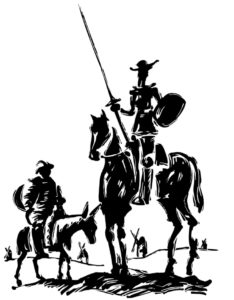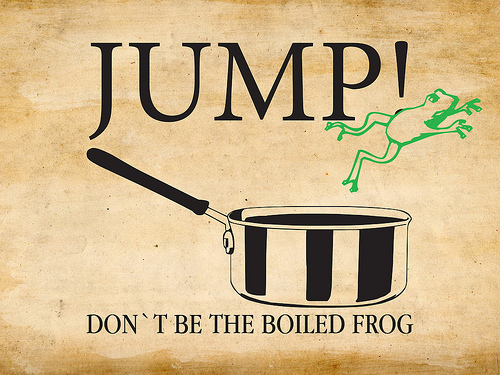Finding your philosophy.
I had someone tell me once that if I were hiring someone I needed to hire someone with a philosophy that I could work with. I could teach them the rest. In our business, that is often an overlooked quality. A gym owner will look at someone’s accomplishments, their ability to spot. They (hopefully!) will do some investigating into their background, make some phone calls to past employers and maybe call some parents or former gymnasts. All of that is a good start but as gym owners or managers interviewing a potential employee you need to LISTEN. You need to have some in-depth conversations to find out if their philosophy in and out of the gym is compatible with yours.
Teaching them your system won’t take long. Educating them to be a BETTER coach should be an ongoing process. You are probably NOT going to change their philosophy. They can change their mind on whether to teach a yurchenko or tsuk first but their core values will remain the same.
In my professional career there were 2 books that helped me form my overall philosophy. Recently I was flying through Heathrow Airport in London and had some time to kill. I was walking by a book store and they had both of “my books” displayed in front. Don Quixote and The Prince. One is my HEART, the other is my HEAD. One is my coaching philosophy, the dreamer. The other is my business side. I bought both.
 Don Quixote
Don Quixote
You need to find balance between being the GREATER FOOL and being the LESSER FOOL. You need to be able to dream and to sometimes NOT see things like they are but as they should, or could, be.
The Greater Fool: Observation that any price (no matter how unrealistic) can be justified if a buyer believes that there is another buyer who will pay an even-higher price for the same item. This line of thinking causes and fuels stockmarket and commodity market booms and manias which, in due course, lead to busts and paranoias.
In fiction, the most celebrated Greater Fool is Cervantes’ great mock-hero Don Quixote, the delusional knight-errant who tilted against windmills which in his crazed imagination were evil giants which it was his duty to slay. Don Quixote is a figure of ridicule. In his futile foolishness he assumes heroic stature, for he persists, against all reason, to see the world not as it is but as it ought to be.
In marketing terms, the Greater Fool is the ultimate disruptive innovator, the greatest risk-taking venture capitalist who dares to bet against overwhelming odds and in doing so extends the boundaries of what convention has established as the realm of the possible.
In the gym the Greater Fool is the one with the ability to carry on down a failed (or failing) path taking it further than the ordinary fool. I would rather just be an ordinary fool. No one is perfect we make mistake but at some point we should be smart enough to learn from the success and failures of others.
“The greater fool is someone with the perfect blend of self delusion and ego to think that he can succeed where others have failed.” – Sloan Sabbith to Will McAvoy in “The Newsroom”
We have all seen coaches and programs that are headed down a failing path. Coaches who think that they can get gymnasts to the top level “their way”. They constantly are trying to reinvent the wheel. There is probably less than .001% of the coaching population who are actually innovative. We just collect drills and ideas from coaches who have been down this path before and add our own spice.
Maybe it is the Italian in me but I relate to COACHING a lot like I do to COOKING. Everyone in my family has a their own recipe for tomato sauce. Some are spicy, some add meat, some add a pinch of sugar. They are all good in their own way. As different as they are- They all start with tomatoes.
When you are teaching a new skill, remember to make sure that the basics are great. Add enough spice to hide any weakness and bring out the best.
I have great faith in fools — self-confidence my friends will call it. ~ Edgar Allen Poe
I will continue to be the lesser fool. I have always had the curse of seeing gymnasts not as they are but as they should be. I do not see a Level 3 or 4. I see a potential Level 9 or 10. Then I coach the child that way. Thinking past the current set of routines, focusing on the basics that are going to help them succeed long term. Sometimes this backfires, sometimes I put too much pressure on the gymnasts and sometimes I cannot hide my disappointment when we fall short. In the end, my feeling is that if I aim high and set my goal at being GREAT, if I fall short, we are still GOOD.
Poets and artists are Greater Fools, as are spiritual masters, scientists and philanthropists. They can afford to be the greater fool. As gymnastics professionals you cannot.
What then are Don Quixote’s three lessons in leadership that you can use?
#1 Imagination
Don Quixote did not just dream about those characters. He firmly believed in them, visualized them to be so, and acted with all his heart according to his beliefs.
In his mind, the reality was less what others thought they were, but what he himself imagined and believe them to be.
In the same way, good coaches need to go beyond the ordinary. They must have the vision and moral courage to pursue something that could be viewed as bold, daring and unconventional.
Good coaches must also hold on clearly to that Big Goal. They need to stick to it despite what naysayers may be saying, and brush off those negative voices.
Imagination is the first step to greatness.
#2 Commitment
A great coach must have the resilience and determination to be committed to his or her own goals, or committed to the cause which is pursued.
Commitment can come in the form of a strong stick-to-itiveness to whatever one believes strongly in. To become a master of the mundane. Or, It could also mean that you have a road map that you stick to, even when times were hard.
#3 Joy
Finally, and probably most importantly, it is vital to have Joy in one’s pursuit. It is impossible to be perfect in the gym. You are going to make mistakes. A sense of humor and an ability to laugh off life’s failures and get over them is always needed in any leadership role. You gotta love what you do and do what you love.
Like Don Quixote, coaches (and leaders) need to have a constant sense of affirmation and true enjoyment in what they do. Only when the pursuit of excellence is aligned with the desires of one’s heart would there be true resonance.
You need to have Passion with Perspective. You need to be all in. To make BIG changes you need to have BIG ideas. You do need something, or someone, to temper your ideas. You need to keep perspective. There are times we all get so lost in the IDEA and the DREAM that we lose perspective.
In times of crisis we can continue to make adjustments only to realize too late that it is TOO LATE. We become a Boiled Frog
Put a frog in a pot of water and turn the burner on. As the temperature of the water rises, the frog will adjust its body temperature accordingly. The frog continues adjusting with the increase in temperature. When the water is about to reach a boiling point, the frog is no longer able to adjust anymore and tries to jump out. TOO LATE. The frog tries to jump but is unable to do so, it has lost all its strength in adjusting with the rising water temperature…
Very soon the frog dies.
What killed the frog?
Many would say the boiling water. The truth is the frog was killed by it’s own inability to decide when it had to jump out
Every organization needs to adjust to events and to those unavoidable crises. The difficult part is knowing when to adjust and when to confront and face the situation. Too often club owners, managers or administrators adjust, adjust, adjust- only to realize too late that the water is going to boil.
We have to decide when to jump.
And jump while we still have the strength.

